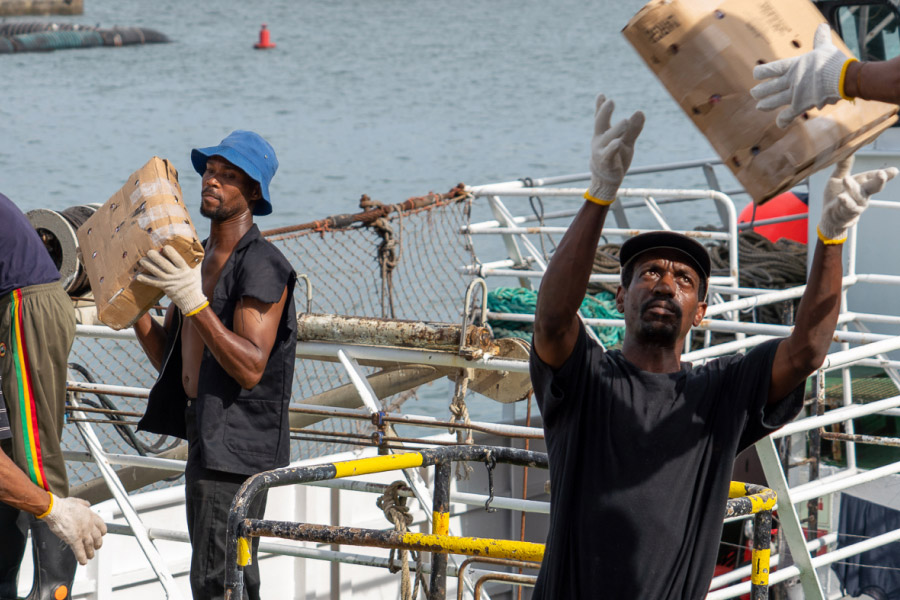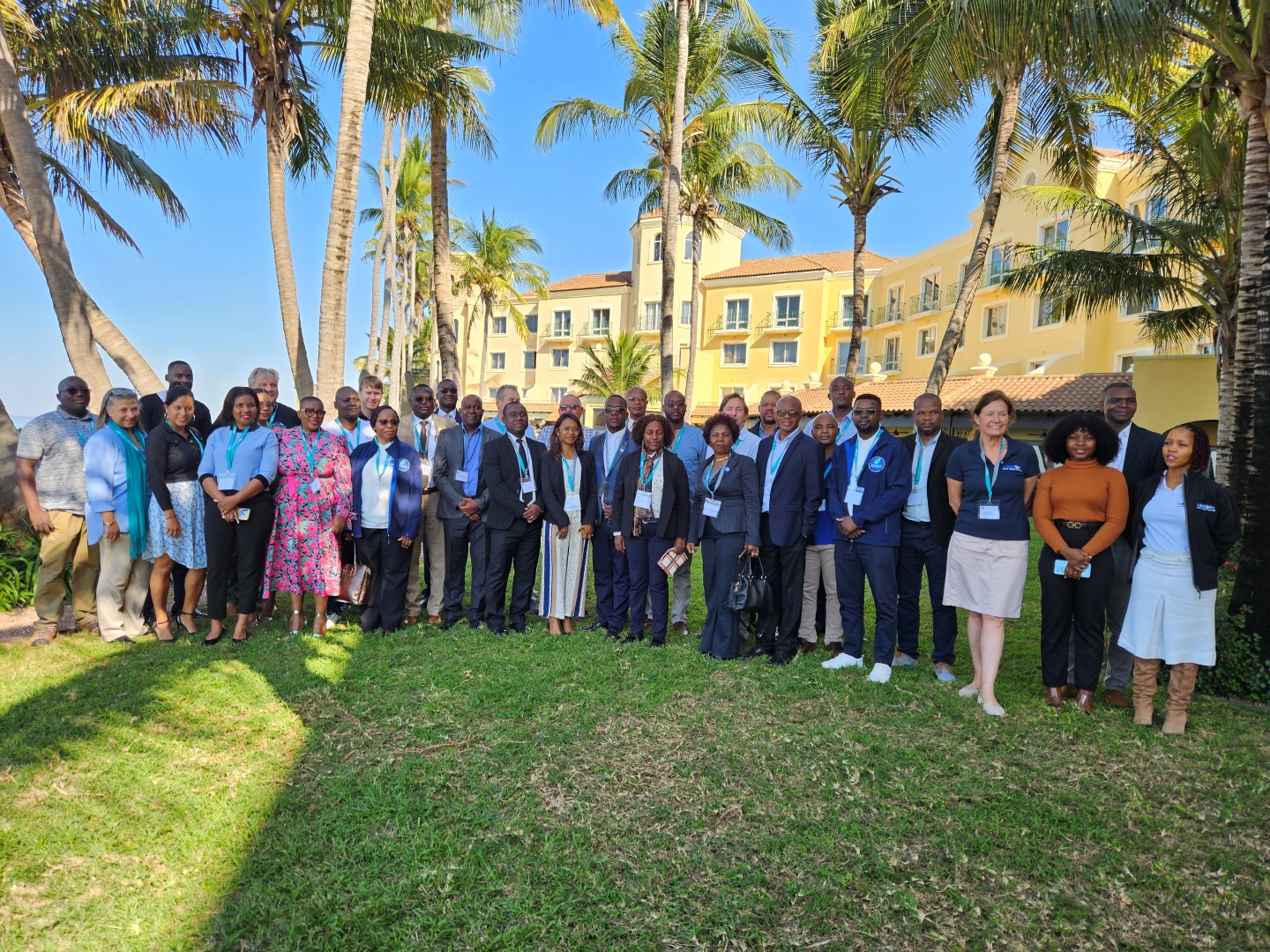South Africa’s MCS staff committed to keep IUU fishing vessels and operators out of the country’s waters
February 28 2024
From 3 – 7 July 2023 in Cape Town, the Department of Forestry, Fisheries and the Environment (DFFE) hosted the first training under the SADC Monitoring, Control and Surveillance Coordination Centre’s (MCSCC) SADC Atlantic project, with a focus on risk assessment of fishing vessels and their operators. The goal: providing fisheries compliance officers with the knowledge and tools to be smarter than fishing operators and empower them to become active contributors to regional efforts aimed at combatting IUU fishing.
SADC ATLANTIC is a project of the SADC and the SADC MCSCC, with funding by the United States State Department and technical implementation by Stop Illegal Fishing (SIF). The project started in 2022 and will be implemented for two years, until September 2024. SADC Atlantic supports the SADC MCSCC and the three target States of Angola, Namibia and South Africa to build their internal MCS capacities and contribute to regional efforts to stop illegal fishing.
Earlier this year, an inception meeting with the management of the DFFE in charge of MCS issues had allowed to identify needs to be addressed as part of the project: strengthening risk assessment of fishing vessels coming into port and for vessels passing by the EEZ (whether authorized to fish or not);
- strengthening capacities in managing activity of foreign vessels in SA’s EEZ and at port;
- capacity-building in vessel monitoring and gathering of intelligence on MCS;
- improving inspections (incl. focus on imports and offloading of fish and endangered species);
- decent working conditions for fisheries workers;
- supporting the use of body-worn cameras during inspection; and
- strengthening regional cooperation on MCS and sustainable fisheries management.
As a main priority, it was agreed to set an initial focus on risk assessment. Over five days, 35 fisheries compliance officers (FCOs) from Cape Town as well as representatives from Durban, Port Elizabeth and East London, were provided with various tools and recommendations to improve their work practices when dealing with fishing vessels and operators. The project implementation team, composed of the MCSCC Interim Project Management Unit (IPMU) and SIF, deep dived with the participants on the importance of risk assessment as an MCS tool and how it supports fishing inspections.
As this training was practical, the fisheries compliance officers conducted risk assessments of fishing vessels calling into port at the time of the workshop, based on the toolbox provided by the trainers. These risk assessments were followed by inspection exercises with body-worn cameras in the port of Cape Town, based on the results of the risk assessments conducted. Participants showed high commitment during the training and made several recommendations on how to improve the efficiency of their actions in keeping IUU fishing activity out of South Africa’s waters. In their eyes, such capacity-building activities are necessary to ensure that inspectors going onboard fishing vessels are prepared before they conduct an inspection. As a follow-up to this workshop, it was agreed that the project implementation team would continue coaching through mentoring activities.
Whilst this technical support is being perceived as essential by the FCOs, the importance of cooperation with other relevant agencies in Cape Town and in all relevant ports and harbours was raised several times during the workshop. Because agencies have different mandates and areas of responsibilities, on-the-ground cooperation and exchange of intelligence are perceived as critical to combat IUU fishing. The participants therefore recommended to include more FCOs from beyond the Cape Town office, and to involve more agencies in the next trainings.
Interagency cooperation is necessary to address the different dimensions associated to IUU fishing, including crime. This complexity was illustrated by representatives from the Drug Enforcement Administration (of the USA) and the Cape-Town based organisation TRAFFIC, who were invited to give an insight of the linkages between fisheries and drugs (DEA) and illegal activities along the fish supply chain (TRAFFIC). This risk assessment training thus provided the participants with a better understanding of this necessity to include a broad range of relevant stakeholders, beyond fisheries, in their day-to-day work. The next step: implementing the recommendations made during the training on how to support better interagency cooperation to combat IUU fishing in South Africa, and at the regional level.


